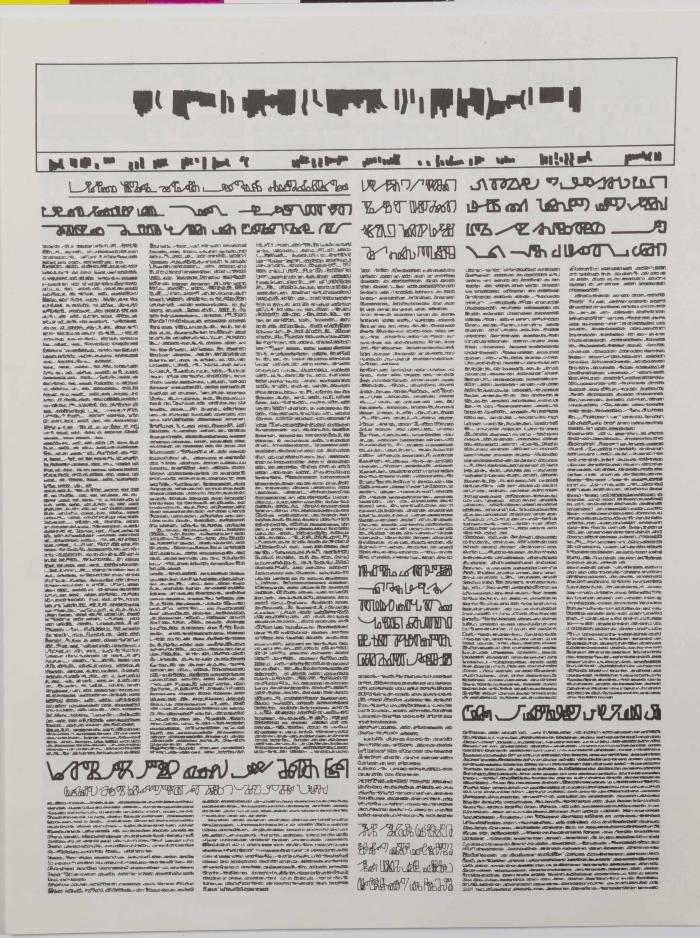Dermisache, Mirtha
Buenos Aires (Argentina), 1940 - 2012
| Name | Dermisache, Mirtha |
| Datos biográficos | Buenos Aires (Argentina), 1940 - 2012 |
| Nacionalidad | Argentina |
| Biografía | Artista y educadora, Mirtha Dermisache estudió magisterio en Artes Visuales en la Escuela Nacional de Artes Visuales “Manuel Belgrano” y el profesorado en la Escuela Nacional de Bellas Artes “Prilidiano Pueyrredón”. Se especializó en grabado y se desempeñó como maestra de Artes Visuales. Entre 1975 y 1981, organizó en Buenos Aires las Jornadas del Color y de la Forma, junto con sus estudiantes del Taller de Acciones Creativas. En el contexto de control y censura de la última dictadura militar, esas Jornadas convocaron a miles de personas adultas a trabajar en un espacio de expresión libre. En lugar de concebir la educación como un intercambio de información, las Jornadas generaron experiencias creativas, expresivas y educativas en tres instituciones artísticas de la Ciudad de Buenos Aires: el Museo de Arte Moderno de Buenos Aires, el Museo de Artes Plásticas “Eduardo Sívori” y el Centro Cultural Ciudad de Buenos Aires (en la actualidad, Centro Cultural Recoleta). Artist and educator Mirtha Dermisache received her Master's degree in Visual Arts from the Escuela Nacional de Arte Visuales Manuel Belgrano and her teaching degree from the Escuela Nacional de Arte Prilidiano Pueyrredón. She specialized in engraving and taught visual arts. Between 1975 and 1981, she organized the Jornadas del Color y de la Forma [Workshops on Colour and Form] in Buenos Aires together with her students from the Taller de Acciones Creativas [Creative Actions Workshop]. In the context of control and censorship of the last military dictatorship, these workshops brought together thousands of adults to work in a space that allowed freedom of expression. Instead of viewing education as an exchange of information, they sought to generate creative, expressive and educational experiences at three artistic institutions of the City of Buenos Aires: the Museo de Arte Moderno de Buenos Aires, the Museo de Artes Plásticas Eduardo Sívori and the Centro Cultural Ciudad de Buenos Aires (now the Centro Cultural Recoleta). |
